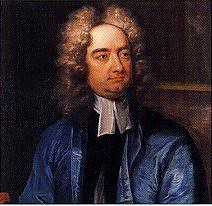Among our national pastimes, there is none more persistent than the ritual lament over the decline and fall of the arts. The death of the novel . . . the end of painting . . . if an art form exists, we're willing to believe it has seen better days.
Religious believers are equally prone to this sort of thing, and they often give it their own spin. One version goes like this: Whereas in the 20th century there were literary giants who grappled with faith—T.S. Eliot, Walker Percy, Flannery O'Connor—our own time is devoid of distinguished writers exploring religious themes.
That perception is encouraged in the media. In The New Republic in 2008, Ruth Franklin noted that "the absence of God from our literature feels so normal, so self-evident, that one realizes with shock how complete it is." Last month in a New York Times Sunday Book Review essay entitled "Has Fiction Lost Its Faith?," Paul Elie suggested that "if any patch of our culture can be said to be post-Christian, it is literature."
Really? From where I stand, things don't look that way. That is in large part because for the past 24 years I have edited Image, a journal that publishes literature and art concerned with the faith traditions of the West. Our instinct when launching the publication was that the narrative of decline was misguided, but we honestly didn't know if we could fill more than a few issues.
Sometimes when you look, you find. Over the years Image has featured many believing writers, including Annie Dillard, Elie Wiesel, Christian Wiman, Marilynne Robinson and Mark Helprin. But these writers of religious faith and others are not hard to find elsewhere. Several prominent American authors—Franz Wright, Mary Karr and Robert Clark—are Catholic converts. Nathan Englander and Jonathan Safran Foer last year published New American Haggadah, a contemporary take on the ritual book used by Jews on Passover.
In short, the myth of secularism triumphant in the literary arts is just that—a myth. Yet making lists of counterexamples does not get at a deeper matter. It has to do with the way that faith takes on different tones and dimensions depending on the culture surrounding it.
Mr. Elie quotes Flannery O'Connor's manifesto: "For the hard of hearing you shout, and for the almost-blind you draw large and startling figures." That made sense in the context of her time, when the old Judeo-Christian narrative was locked in a struggle with the new secular narratives of Marx, Freud and Darwin.
However, we live in a postmodern world, where any grand narrative is suspect, where institutions are seen as oppressive. So the late Doris Betts could say that for all her admiration of Flannery O'Connor, her own fiction had to convey faith in whispers rather than shouts. Indeed, one of the most ancient religious ideas is that grace works in obscure, mysterious ways. But obscure is not invisible.
Consider Christopher R. Beha's "What Happened to Sophie Wilder," published last year, which in Commentary magazine critic D.G. Myers said contains "what is perhaps the best conversion scene in an English-language novel since [Graham Greene's] The End of the Affair. "
The title character, an intelligent, sophisticated writer with no religious background, begins to read Thomas Merton and other writers much concerned with faith. Nothing happens to her for a time, but one day in Mass "something came over her; she walked out changed. It got closer to it to say that she was, for a time, occupied. . . . But mostly she knew that it was something outside of herself, not an idea or a conceit or a metaphor." God is what happens to Sophie Wilder.
Or consider Alice McDermott, whose National Book Award-winning Charming Billy presents a moving meditation on faith. After World War II, an American soldier, Billy Lynch, comes home and has his heart broken when an Irish girl to whom he is engaged returns to Ireland. His best friend tells Billy that she has died, but the truth is that she has abandoned Billy for a childhood sweetheart.
Much of Billy's life is lived believing this lie and he turns to alcohol. But he's a charming drunk, one who lives by poetry and prayer, which fuel his immortal longings. His best friend concludes that Billy "wanted too much." But the strength of his desire is the heart of his faith. When someone attempts to play down the reality of death, Billy bursts out: "Our Lord spilling His every drop of blood on the cross to show us death is terrible . . . and all the while we're telling ourselves that it's not so bad, after all." "Life goes on" after a loved one dies, he is told. His response: "I won't let it."
Ms. McDermott asks us to consider how believing a beautiful lie might be like an act of faith. At the same time, Billy's faith makes him almost holy—mysteriously, truth slips in alongside falsehood. Ultimately, the novel is as much about the narrator, a postmodern "apostate" who in telling the story comes to hear the whisper of faith in Billy's life.
Today the faith found in literature is more whispered than shouted. Perhaps a new Flannery O'Connor will rise, but meanwhile we might try listening more closely to the still, small voice that is all around us.
Mr. Wolfe is the author, most recently, of Beauty Will Save the World (ISI Books, 2011).
A version of this article appeared January 11, 2013, on page A11 in the U.S. edition of The Wall Street Journal, with the headline: Whispers of Faith in a Postmodern World.

 >br>
>br>









No comments:
Post a Comment